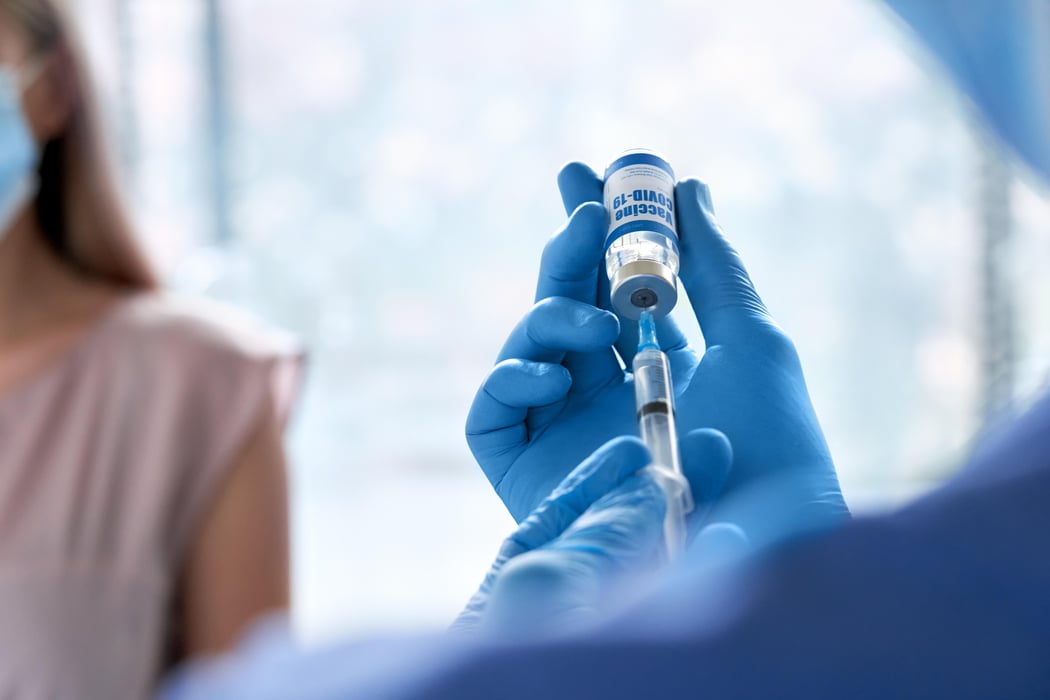No Rise in Guillain-Barre Syndrome Cases After COVID Shots: Study

WEDNESDAY, Oct. 5, 2022 (HealthDay News) -- A new study has found no evidence that COVID-19 shots increase the incidence of Guillain-Barré syndrome, according to researchers.
"This is important because we can say that there is no significant increased risk of Guillain-Barré syndrome in the population," said study first author Mustafa Jaffry, a medical student at Rutgers New Jersey Medical School in New Jersey. "This information can help in ensuring confidence in vaccines, while approaching it from an objective, statistical analysis."
After receiving initial reports of a possible connection, the U.S. Food and Drug Administration issued a warning in July 2021 that people receiving the Johnson & Johnson COVID vaccine might be at a greater risk of developing the rare neurological condition that attacks the nerves and is sometimes fatal. Guillain-Barré syndrome is often caused by a bacterial infection, so that can make tracking down the source of the syndrome more difficult.
"The original reports were just saying that someone got vaccinated, and then a few weeks later developed Guillain-Barré syndrome," Jaffry said in a Rutgers news release. "But they could have had an infection at that time that was unrelated to the vaccine."
The researchers, led by Dr. Nizar Souayah, a professor of neurology at Rutgers, developed an artificial intelligence tool so they could analyze information from the Vaccine Adverse Event Reporting System (VAERS).
Patients and physicians report any harmful effects they've had from any vaccines to that national database, which is maintained by the FDA and the U.S. Centers for Disease Control and Prevention.
The researchers set out to understand if there was any risk from the vaccine, regardless of brand. They also wanted to include other types of vaccines because there has long been a suggestion of an association between vaccines and the syndrome.
"It's a burning question in medicine," Jaffry noted.
Researchers divided the data into three time periods: They used the time before the pandemic began and the interval before the vaccines were created as "control" periods that they could compare with the time after vaccines were offered to the public.
The team calculated how many vaccines were administered in each time period.
The analysis also included adverse reports on vaccines for influenza, HPV, meningitis and pneumonia.
The researchers assigned a value to each case of Guillain-Barré syndrome that indicated the likelihood it represented a true diagnosis.
"The primary observation is that we found that while there were more reports of Guillain-Barré syndrome after COVID-19 vaccines compared to other vaccines, this rate was not higher than the incidence of Guillain-Barré syndrome in the general population," Souayah said in the release.
"The significance of that statement is this: The COVID vaccine is not statistically associated with an increased risk of Guillain-Barré syndrome," he said.
The Rutgers researchers plan to continue to explore other possible associations between vaccines and diseases.
The findings were published recently in the journal Vaccine.
More information
The U.S. Centers for Disease Control and Prevention has more on Guillain-Barré syndrome.
SOURCE: Rutgers University, news release, Oct. 3, 2022
Related Posts
La IA podría igualar al personal entrenado para detectar la TB en las radiografías de tórax
MARTES, 18 de abril de 2023 (HealthDay News) -- La inteligencia artificial (IA)...
Higher Fish Intake May Increase Melanoma Risk
FRIDAY, June 10, 2022 (HealthDay News) -- Higher total fish intake is associated...
Biden to Sign Bill That Helps Veterans Exposed to Toxic Burn Pits
WEDNESDAY, Aug. 10, 2022 (HealthDay News) -- President Biden was poised on...
Childhood Obesity Rate in the U.S. Higher Now Than 12 Years Prior
TUESDAY, July 5, 2022 (HealthDay News) -- The incidence of childhood obesity is...
